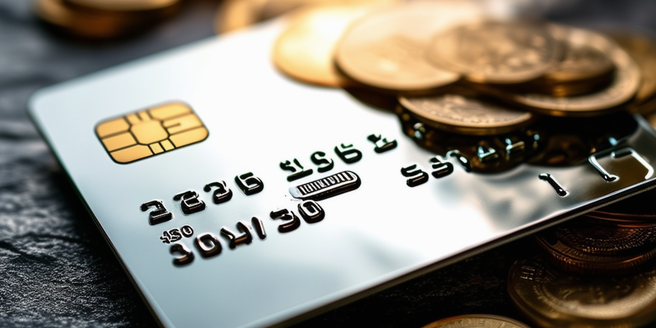
Understanding Secured Credit Cards
A secured credit card is a type of credit card that requires a cash deposit as collateral. This is a great option for individuals who have little or no credit history. The cardholder’s credit limit often corresponds to their deposit amount, providing the lender with a safety net if payments aren’t made. However, unlike regular credit cards, failing to make payments can result in the loss of the deposit. This makes it a lower risk option for lenders. Secured credit cards work similarly to regular cards and help to build a credit history as the issuing bank reports to the credit bureau.
Building Credit History with Secured Credit Cards
Building credit history can seem daunting, particularly for those with little or no credit record, yet it is crucial for activities such as loan applications and apartment renting. Secured credit cards, requiring a deposit usually equivalent to the credit limit, can simplify this process. Despite seeming inconvenient initially, they minimize issuing banks’ risk and can be granted to those with low or no credit history. They facilitate building a good credit history by using them for daily expenses and paying the balance promptly, proving financial responsibility. Positive behavior over time improves credit history, granting access to financial products like loans or mortgages and helping newcomers better navigate the financial world by developing beneficial financial habits. In conclusion, secured credit cards offer a beneficial tool in building credit history, enhancing it over time through regular use and timely payments, ensuring financial security.
The Role of Collateral in Secured Credit Cards
The collateral for a secured credit card is a cash deposit paid at account initiation, forming the framework of the account and often equaling your credit limit. This pre-determined limit, based on your deposit, sets your spending power while providing a safeguard for the lender. If you default on payments due to any unforeseen circumstances, the lender can use these deposited funds to offset the losses from not receiving the credit card payments. Thus, the deposit protects the lender and allows you to manage your credit, serving dual functions in securing both parties’ interests.
Secured versus Unsecured Credit Cards: The Key Differences
The primary difference between secured and unsecured credit cards is that secured cards require a cash deposit as collateral from the user, operating as a safety net for the credit card company in case of non-repayment. Meanwhile, unsecured cards do not require a deposit and instead, the card company extends credit based on trust and the user’s creditworthiness. This lack of tangible security means a higher risk for the company, often resulting in unsecured cards coming with higher credit limits for user flexibility. Therefore, choosing between secured or unsecured cards is a personal decision, dependent on factors like credit history and financial situation, considering unsecured cards offer higher purchasing power but carry risks for the credit company.
How to Upgrade from a Secured to an Unsecured Card
After establishing a credit history with a secured card, you might become eligible for an unsecured card, a progress reflecting your improved credit status. Your card issuer, performing a comprehensive credit health review, determines this eligibility and typically proposes the transition. This next step can offer benefits like increased credit access, enhancing financial flexibility. Beyond providing greater credit availability, switching to an unsecured card can also strengthen your credit history. Higher credit limits with responsible usage positively impact your credit utilization and score, leading to improved financial capability and overall financial health.
Best Practices for Using Secured Credit Cards
Secured credit cards can provide various advantages if users interact with them responsibly by making timely payments and not exceeding the credit limit set by the issuer. Prompt payment and staying within your limit indicate financial dependability and good credit behavior, which can boost your credit rating and provide access to better credit opportunities. Regularly monitoring account statements assists in adjusting expenses and catching suspicious activities fast, promoting financial health. Proper credit card use helps maintain a desirable credit utilization ratio, a significant factor in determining credit scores, and prevents potential high-interest debt. By promptly paying off your balance and avoiding a large one, your financial standing can improve. In summary, mindful use of your secured credit card, including punctual payments, responsible credit utilization, and regular account checks, enables you to fully benefit from the card, improve your credit score and financial management, leading to a secure financial future.
